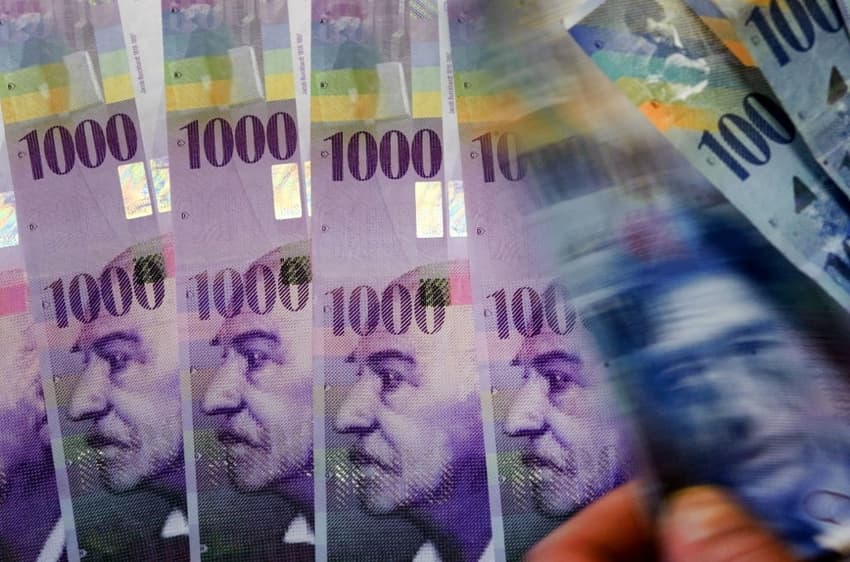What do people in Switzerland spend their money on?

The Household Budget Survey published this week by the Federal Statistical Office (FSO) shows some interesting details about how much Swiss families earn and what are their most important expenses.
These findings are based on data from 2018, the last year for which official statistics are available.
Income
According to FSO, the average household disposable income in Switzerland in 2018 was 7,069 francs per month.
‘Disposable income’ is defined as gross income left after deducting compulsory expenses. It is made up of the earnings of each member of the household, which consists of an average of 2.16 people.
READ MORE: Why Zurich ranks as the world’s most expensive city once again
In addition to monthly salaries and allowances, household income is also made up of annual payments such as the 13th salary, which is common is Switzerland. Also taken into account are pensions received, social benefits, transfers from other households, as well as wealth income such as interest and dividends.
Overall, income from work made up nearly 75 percent of a household revenue, while pensions and social benefits represented on average 19.4 percent of gross income.
The level of income is often lower in one-person households than in multi-person households, with more than one member able to contribute to this income, FSO reported.
What are the main household expenses?
A large portion of the total disposable income — 5,296 francs — is spent for the consumption of goods and services.
Consumer spending represented 52.4 percent of gross household income. Expenses for housing and energy were the biggest burden on the budget, at around 1,456 francs, or 14.4 percent of gross income.
Taxes took out 1,182 francs per month, or 11.7 percent of income.
Also part of compulsory expenditure are social insurance and pension fund contributions (10.2 percent of gross income) as well as health insurance premiums (6.5 percent).
Transport costs amounted to 7.4 percent, followed by food and non-alcoholic beverages (6.3 percent), restaurants (5.8 percent), and leisure and cultural activities (5.4 percent).
What is left?
The sum of 1,589 francs, or 15.7 percent of gross income, was left at the end of the month in an average household
However, among households in the lowest income bracket — typically those earning less than 5,000 francs a month — nothing is left after all the expenses are paid.
This can be explained by the relatively large proportion (60 percent) of retiree households, which finance part of their expenses by drawing on their savings.
Comments
See Also
These findings are based on data from 2018, the last year for which official statistics are available.
Income
According to FSO, the average household disposable income in Switzerland in 2018 was 7,069 francs per month.
‘Disposable income’ is defined as gross income left after deducting compulsory expenses. It is made up of the earnings of each member of the household, which consists of an average of 2.16 people.
READ MORE: Why Zurich ranks as the world’s most expensive city once again
In addition to monthly salaries and allowances, household income is also made up of annual payments such as the 13th salary, which is common is Switzerland. Also taken into account are pensions received, social benefits, transfers from other households, as well as wealth income such as interest and dividends.
Overall, income from work made up nearly 75 percent of a household revenue, while pensions and social benefits represented on average 19.4 percent of gross income.
The level of income is often lower in one-person households than in multi-person households, with more than one member able to contribute to this income, FSO reported.
What are the main household expenses?
A large portion of the total disposable income — 5,296 francs — is spent for the consumption of goods and services.
Consumer spending represented 52.4 percent of gross household income. Expenses for housing and energy were the biggest burden on the budget, at around 1,456 francs, or 14.4 percent of gross income.
Taxes took out 1,182 francs per month, or 11.7 percent of income.
Also part of compulsory expenditure are social insurance and pension fund contributions (10.2 percent of gross income) as well as health insurance premiums (6.5 percent).
Transport costs amounted to 7.4 percent, followed by food and non-alcoholic beverages (6.3 percent), restaurants (5.8 percent), and leisure and cultural activities (5.4 percent).
What is left?
The sum of 1,589 francs, or 15.7 percent of gross income, was left at the end of the month in an average household
However, among households in the lowest income bracket — typically those earning less than 5,000 francs a month — nothing is left after all the expenses are paid.
This can be explained by the relatively large proportion (60 percent) of retiree households, which finance part of their expenses by drawing on their savings.
Join the conversation in our comments section below. Share your own views and experience and if you have a question or suggestion for our journalists then email us at [email protected].
Please keep comments civil, constructive and on topic – and make sure to read our terms of use before getting involved.
Please log in here to leave a comment.